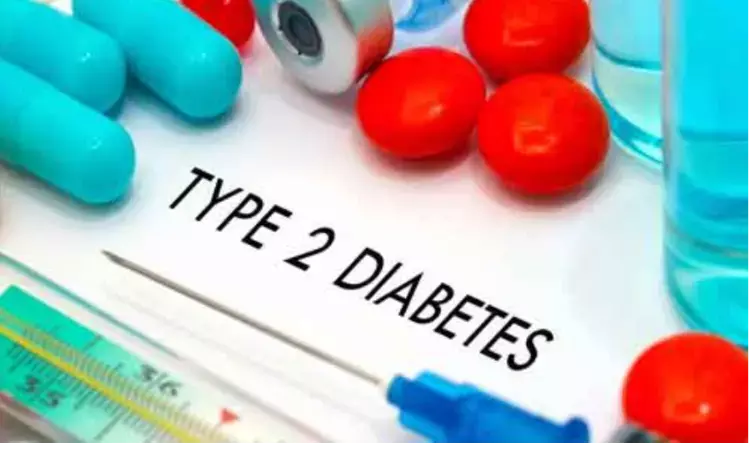- Home
- Medical news & Guidelines
- Anesthesiology
- Cardiology and CTVS
- Critical Care
- Dentistry
- Dermatology
- Diabetes and Endocrinology
- ENT
- Gastroenterology
- Medicine
- Nephrology
- Neurology
- Obstretics-Gynaecology
- Oncology
- Ophthalmology
- Orthopaedics
- Pediatrics-Neonatology
- Psychiatry
- Pulmonology
- Radiology
- Surgery
- Urology
- Laboratory Medicine
- Diet
- Nursing
- Paramedical
- Physiotherapy
- Health news
- Fact Check
- Bone Health Fact Check
- Brain Health Fact Check
- Cancer Related Fact Check
- Child Care Fact Check
- Dental and oral health fact check
- Diabetes and metabolic health fact check
- Diet and Nutrition Fact Check
- Eye and ENT Care Fact Check
- Fitness fact check
- Gut health fact check
- Heart health fact check
- Kidney health fact check
- Medical education fact check
- Men's health fact check
- Respiratory fact check
- Skin and hair care fact check
- Vaccine and Immunization fact check
- Women's health fact check
- AYUSH
- State News
- Andaman and Nicobar Islands
- Andhra Pradesh
- Arunachal Pradesh
- Assam
- Bihar
- Chandigarh
- Chattisgarh
- Dadra and Nagar Haveli
- Daman and Diu
- Delhi
- Goa
- Gujarat
- Haryana
- Himachal Pradesh
- Jammu & Kashmir
- Jharkhand
- Karnataka
- Kerala
- Ladakh
- Lakshadweep
- Madhya Pradesh
- Maharashtra
- Manipur
- Meghalaya
- Mizoram
- Nagaland
- Odisha
- Puducherry
- Punjab
- Rajasthan
- Sikkim
- Tamil Nadu
- Telangana
- Tripura
- Uttar Pradesh
- Uttrakhand
- West Bengal
- Medical Education
- Industry
SGLT-2 inhibitors or GLP-1 receptor agonists use in type 2 diabetes: Expert Guidelines

Delhi: An international panel including patients, clinicians, and methodologies has released risk-stratified recommendations concerning the use of SGLT-2 inhibitors or GLP-1 receptor agonists in adults with type 2 diabetes.
Clinical decisions about the treatment of type 2 diabetes have been led by glycaemic control for decades. SGLT-2 inhibitors and GLP-1 receptor agonists are traditionally used in people with elevated glucose levels after metformin treatment. This has changed through trials demonstrating atherosclerotic cardiovascular disease (CVD) and chronic kidney disease (CKD) benefits independent of medications' glucose-lowering potential.
The recommendations were based on the results from a linked systematic review and network meta-analysis (764 randomized trials included 421 346 participants) of benefits and harms.
The guideline panel issued risk-stratified recommendations concerning the use of SGLT-2 inhibitors or GLP-1 receptor agonists in adults with type 2 diabetes
- Three or fewer cardiovascular risk factors without established CVD or CKD: Weak recommendation against starting SGLT-2 inhibitors or GLP-1 receptor agonists.
- More than three cardiovascular risk factors without established CVD or CKD: Weak recommendation for starting SGLT-2 inhibitors and weak against starting GLP-1 receptor agonists.
- Established CVD or CKD: Weak recommendation for starting SGLT-2 inhibitors and GLP-1 receptor agonists.
- Established CVD and CKD: Strong recommendation for starting SGLT-2 inhibitors and weak recommendation for starting GLP-1 receptor agonists.
- For those committed to further reducing their risk for CVD and CKD outcomes: Weak recommendation for starting SGLT-2 inhibitors rather than GLP-1 receptor agonists.
About SGLT-2 inhibitors and GLP-1 receptor agonists
Sodium-glucose cotransporter 2 (SGLT-2) inhibitors are a class of oral anti-diabetic drugs, including empagliflozin, canagliflozin, dapagliflozin, and ertugliflozin. They increase the excretion of glucose and sodium in the urine by inhibiting SGLT-2 in the kidney, thus lowering the blood glucose level. They may also slightly lower blood pressure and body weight.
Glucagon-like peptide 1 (GLP-1) receptor agonists are a class of non-insulin injection anti-diabetic drugs, including exenatide, liraglutide, lixisenatide, albiglutide, dulaglutide, semaglutide, and loxenatide. They mimic the intestinal hormone incretin and bind its receptor, which slows the rate at which food leaves the stomach, controls the appetite, and regulates insulin and glucagon secretion.
Reference:
"SGLT-2 inhibitors or GLP-1 receptor agonists for adults with type 2 diabetes: a clinical practice guideline," is published in the BMJ.
DOI: https://www.bmj.com/content/373/bmj.n1091
Dr Kamal Kant Kohli-MBBS, DTCD- a chest specialist with more than 30 years of practice and a flair for writing clinical articles, Dr Kamal Kant Kohli joined Medical Dialogues as a Chief Editor of Medical News. Besides writing articles, as an editor, he proofreads and verifies all the medical content published on Medical Dialogues including those coming from journals, studies,medical conferences,guidelines etc. Email: drkohli@medicaldialogues.in. Contact no. 011-43720751


